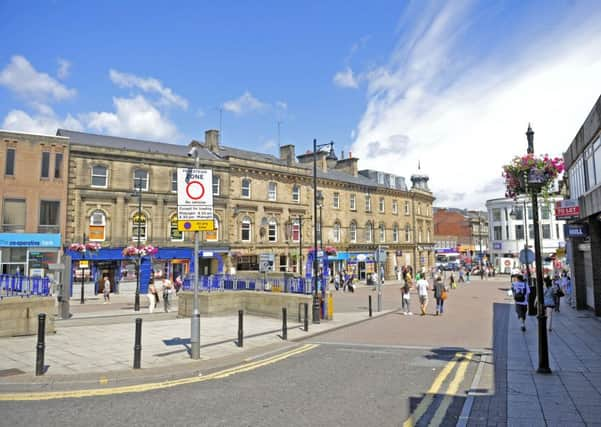Helen Dickinson: Britain's high streets at the crossroads as rates review looms


Birthplace of some of the UK’s longest lived and innovative businesses, Yorkshire is home to some of the country’s biggest retailers as well as local names who have been serving the region for generations.
As in the rest of the country, businesses in and around Yorkshire have suffered under the growing burden of business rates. It’s the highest commercial property tax of any EU country and among the highest in the developed world.
Advertisement
Hide AdAdvertisement
Hide AdAs many of Yorkshire’s local shopkeepers know only too well, business rates often exceed rents. That’s why next month’s Government announcement of the results of their review of this system is so critical, especially for those concerned with the future health of our high streets and town centres and the local jobs here.
In April, the Government will introduce the National Living Wage, lifting up the minimum hourly rate for workers aged 25 or older to £7.20.
For a shop owner, your wages and rates bills are among your biggest costs. The British Retail Consortium has found that when you place the new living wage with an ever rising business rates bill, and alongside the soon to be introduced Apprenticeship Levy, then the retail industry across the UK has to find £14bn over the next few years.
While retailers are supportive of the need to do more on pay and of the objectives of the National Living Wage, how they manage the impact the cost of these policies will determine where we shop, how we shop and who works in our shops for years to come.
Advertisement
Hide AdAdvertisement
Hide AdWorryingly, the effect of business rates can already be seen in the empty shops and struggling town centres across Yorkshire where the current vacancy rate is one in 10 shops.
The latest figures uncovered by the BRC show that the retail industry accounts for 217,769 jobs across Yorkshire and the Humber, and pays over £500m in business rates.
Local retailers, from the family-owned to national chains, already face difficult decisions about the future of their shops because of these disproportionately high bills. This strain has been felt right across the country with 20,000 town centre shops closed between 2004 and 2014 (according to Verdict). With over 60 per cent of leases up for renewal by 2017, there could be as many as 80,000 closures, equivalent to 800,000 jobs. The impact on our local communities will be instant and lasting.
Although the Government plans to allow local authorities to lower their rates bill from 2020, it’s difficult to see how the burden will come down anytime soon.
Advertisement
Hide AdAdvertisement
Hide AdAfter all, local authorities already have these powers but too few choose to use them, no doubt because of their own tough budgetary pressures.
For an industry that is undergoing profound structural change and that is determined to keep consumer prices down, but also facing these additional costs of doing business, then the pressure to hold back investment and possibly close shops is growing.
What’s more our analysis shows that more job losses are likely to fall on the most vulnerable people in the workforce – who often have less alternative employment options – and the most deprived areas around the country.
We have an opportunity to turn things around. After 18 months of looking at the current rates system, the Government should next month set out its vision for a modern, sustainable and transparent system, rebalancing its tax take away from retail while also capping the national rate immediately to prevent further closures on our high streets.
Advertisement
Hide AdAdvertisement
Hide AdThis will give retailers the flexibility needed to implement the National Living Wage in a way that helps the Government to achieve its objectives and help businesses to adjust.
By going beyond plans to devolve rates through fundamentally reforming the business rates system, the Government can unleash investment, create new jobs and expand businesses across Yorkshire.
Meanwhile, retailers will continue to make the case to politicians that reform is mutually beneficial as the Government tries to rebalance the economy, secure more investment and remove the disincentives to operating in our high streets and town centres.